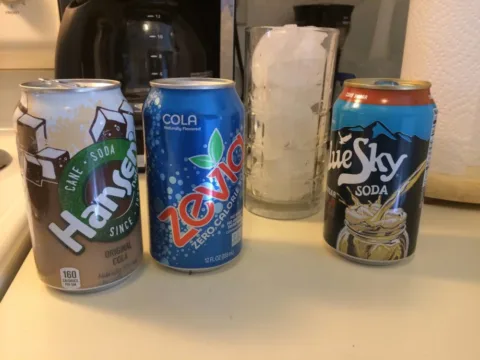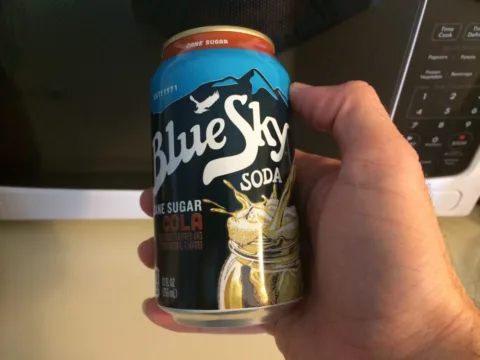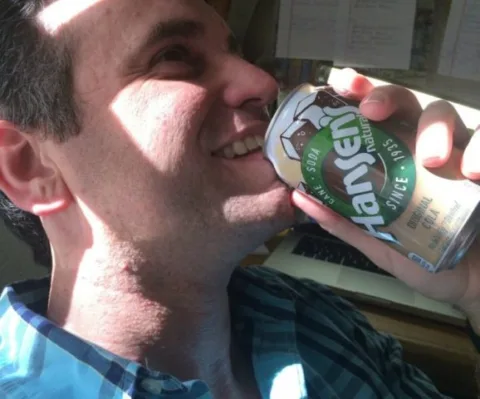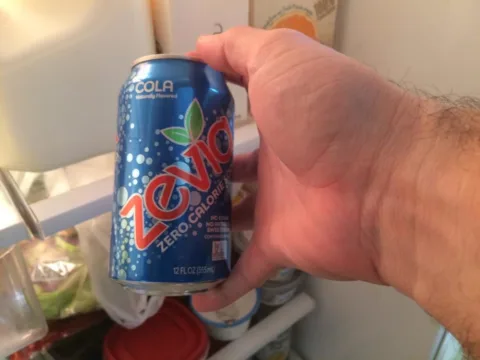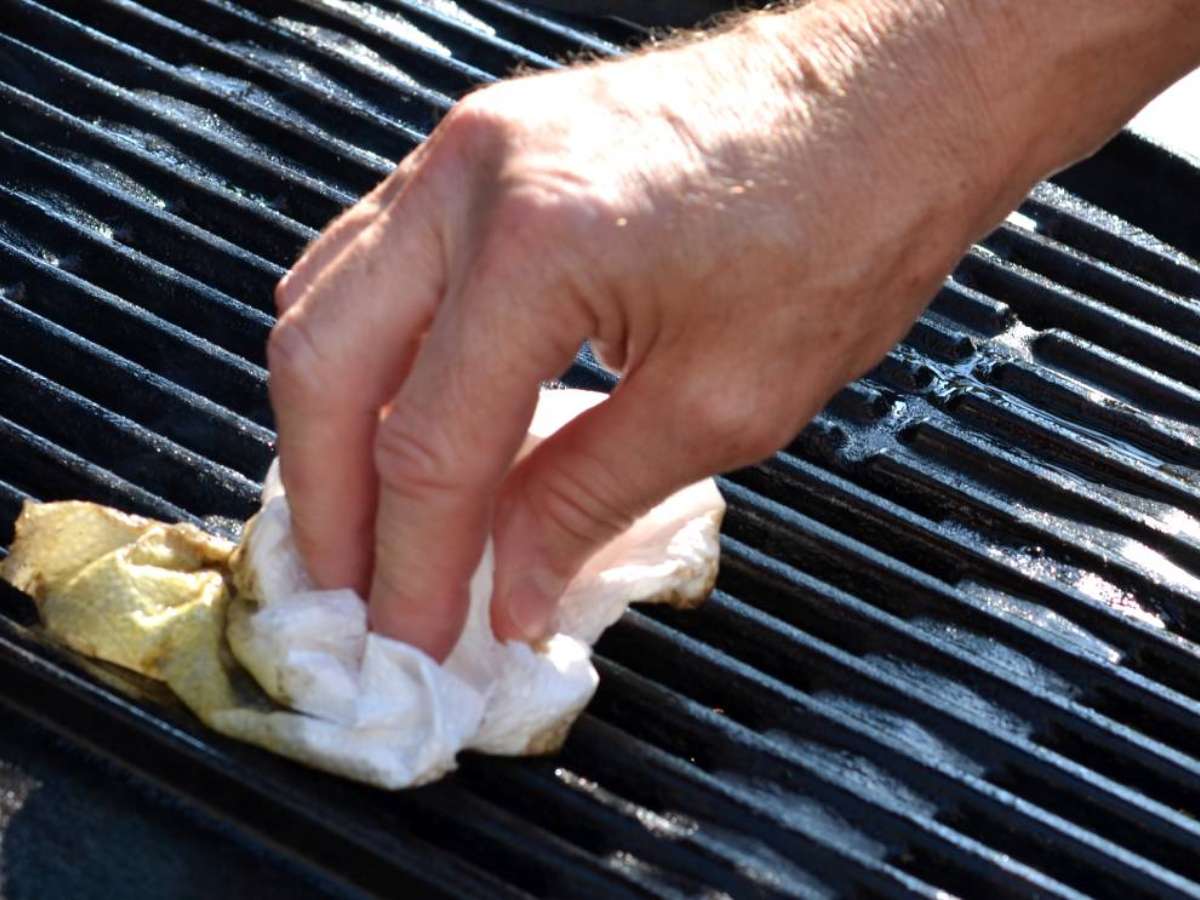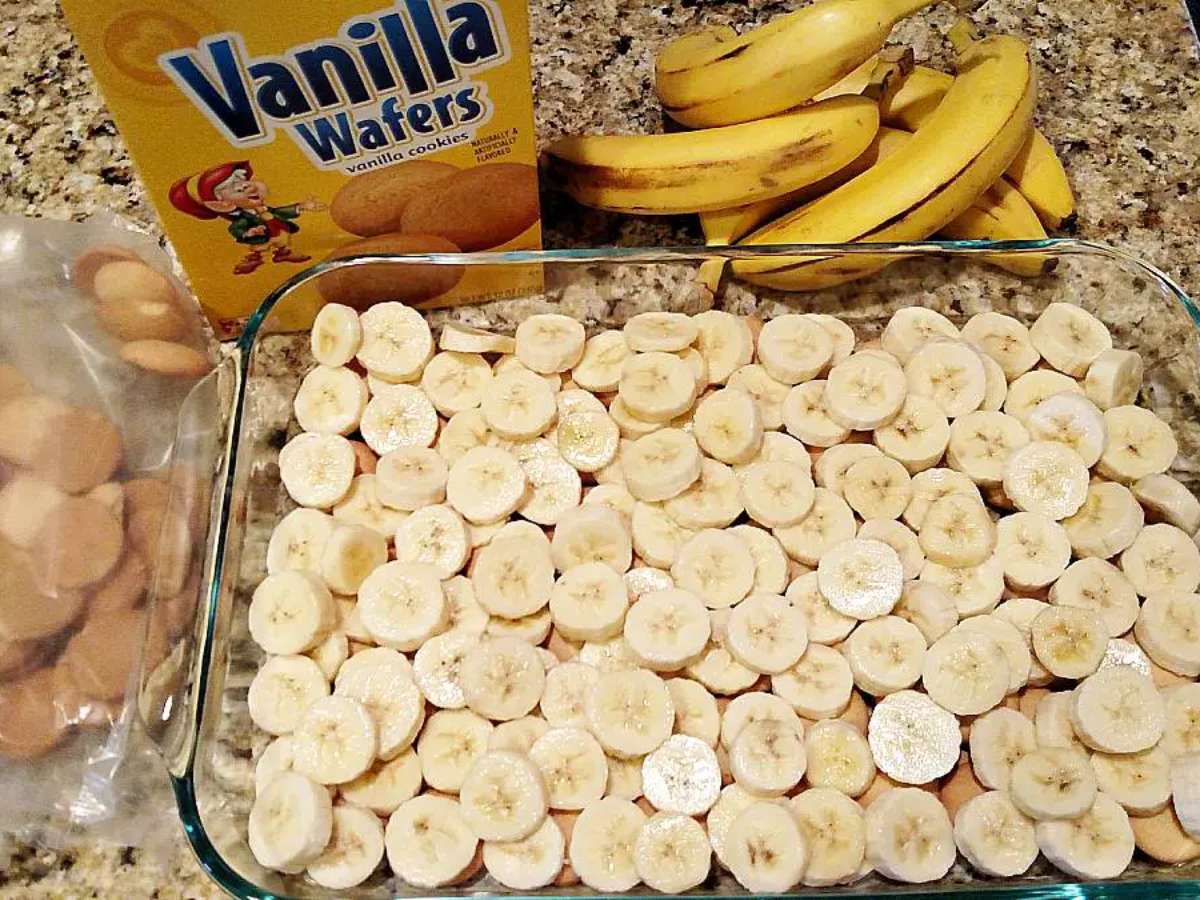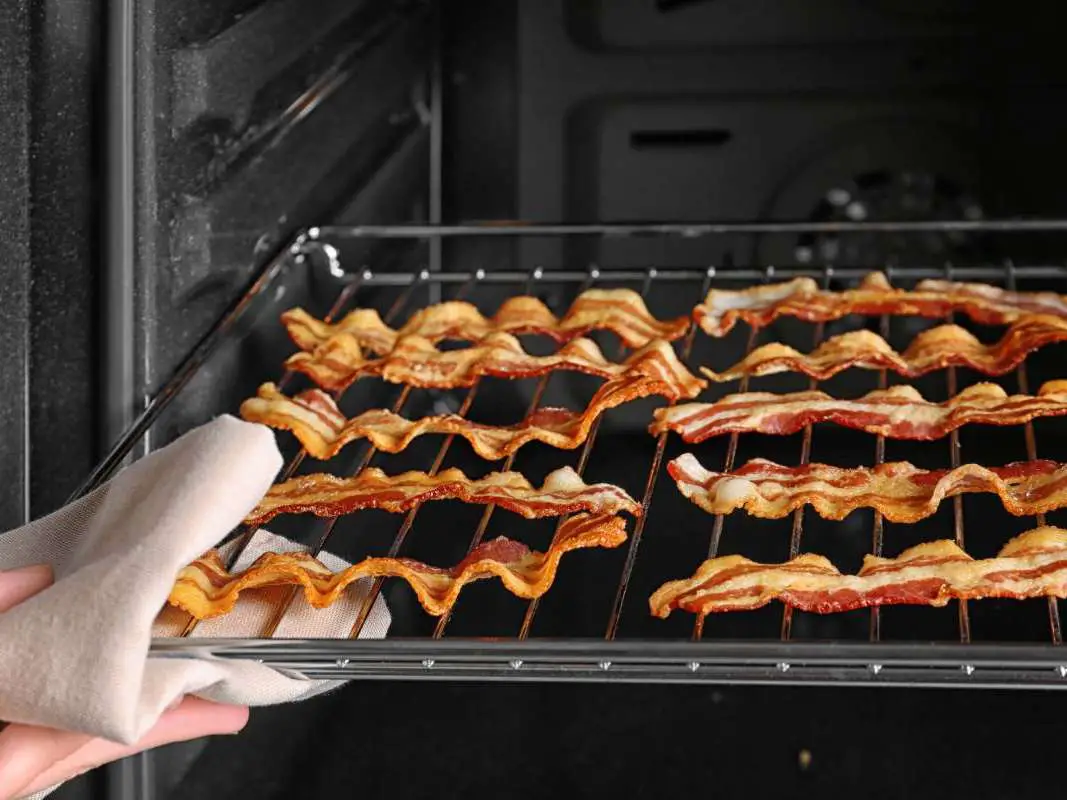Organic sodas have my attention these days. I recently set out to find the best organic soda.
I’m a (virtually) lifelong soda drinker and have passionately taken sides in the Cola Wars. My love for soda goes back to my first sip at the dietarily formative age of 2.
I was hooked and have had a soda just about every day of my life since. Well, except for a few occasional Lenten seasons and during some tense moments when the Pepsi syringe panic of 1993 frightened countless Americans (including me) from drinking soda for a while.
Now I’m well into my 30s and have been looking for healthier ways to indulge my love for soda without totally blowing my diet or ruining my good health.
What Makes Regular Soda Bad For Your Health?
I’m not a medical professional, but I’ve done plenty of personal and journalistic research on why soda isn’t good for your health.
My biggest concern about drinking regular soda is the high amount of high-fructose corn syrup in many fizzy drinks, not to mention caramel color and other additives which can lead to obesity and other health problems. Since the mid 1980s most of the name-brand sodas have been using high-fructose corn syrup.
So I thought it was a great move when Pepsi unveiled its “Throwback” line of drinks, which are made with real sugar — just like Pepsi’s soft drinks that were made before 1985 and just like the sodas I enjoyed during my early youth.
Coca-Cola also manufactures Coke with real sugar — it’s colloquially called Mexican Coke and is available in the United States only in glass bottles. It’s designed for the Mexican market but has been popularized here for its cane sugar sweetener.
I know of almost no regular restaurants that offer the real sugar variant of Pepsi or Coke, save for one local taco hut that sells the Mexican version of Coke in a bottle.
However, I’ve still been looking for healthier soda alternatives, and preferably those with few artificial ingredients. After all, even Throwback Pepsi contains caramel color — an ingredient some scientists say may contain a carcinogen. Some experts are even suggesting that some sodas may cause cancer, or at least have the potential to.
Obviously, the concern with drinking soda is larger than just cancer. Soda can also lead to obesity, cause heart problems, and heighten the risk of many other ailments.
Is Organic Soda Healthier Than Regular Soda?
This brings us back to the question: are there healthier alternatives to regular soda or diet sodas?
While the healthiest alternative to soda is drinking pure water, those who enjoy soft drinks can take heart — soda makers are finally stepping more in line with the organic foods industry.
This doesn’t mean organic soda contains any less sugar or should necessarily be regarded as “healthy soda.” But what organic soft drinks do offer is fewer of the chemicals that worry many of the health experts who claim sugary, fizzy drinks are bad for you.
Therefore, an all natural soda is a better choice in the long run.
My 3 Organic Soda Reviews
I shopped at several conventional and organic grocery stores in my city trying to find a wide selection of organic sodas to taste, compare, and review. I found 3 different organic sodas tasting somewhat similar to the major name-brand sodas that are universally available.
Even if you can’t find these same organic sodas in your grocery store or find other natural soda options, the reviews below (in no particular order) should at least help you get a better idea about the organic sodas on the market and help you figure out which ones you’ll want to try soon.
#1 – Blue Sky Soda
Few phrases conjure up naturalness as well as organic Blue Sky Soda. This cane sugar soda boasts a cinnamon, nutmeg zest and kola nut flavor — but is it a suitable replacement for traditional sodas?
My first thought when reading the can was, “What the heck is a kola nut?” I figure that’s where the word “cola” derives from, but, really — tell me more about these kola nuts. (Nut aficionados, please don’t judge me for my ignorance.)
As I found out through some research, the kola nut comes from the tropical kola tree, which grows in the forests of Africa. The tree produces caffeine-laced fruit that is commonly used to flavor sodas. Ahhh… That’s why we have caffeine-enriched sodas, many bearing the cola name. Call it a lightbulb moment for me.
In the case of Blue Sky organic soda, it’s actually one of the few modern-day soft drinks that still uses kola nut for caffeine and flavor.
I don’t really know what a kola nut tastes like by itself, but I found out its flavor is similar to cinnamon and nutmeg — that explains the relatively strong cinnamon flavor in Blue Sky organic soda. The flavor is certainly sharper than I’ve perceived in other sodas, and much more cinnamon-y than Pepsi, which may or may not be a bad thing, based on your preference.
In addition to the cinnamon flavor, there’s something else Blue Sky has more of than Pepsi — sugar.
While real sugar Throwback Pepsi contains 41 grams of sugar per 12-ounce serving, Blue Sky soda contains a whopping 43 grams. If that spread doesn’t sound all that bad to you, consider that 4 grams of sugar equals a whole teaspoon of sugar! So, effectively, that’s a half-teaspoon difference — which adds up if you have more than a few sodas a day. (And plenty of people guzzle more than a few cans of soda each day.)
While the sugar content in some organic sodas like Blue Sky might be higher than traditional sodas, it’s good to know that there isn’t any sodium in Blue Sky, nor is there any caffeine in this natural soda. By comparison, real sugar Throwback Pepsi has 30 milligrams of sodium and 38 milligrams of caffeine.
Interestingly, Throwback Pepsi also has 20 fewer calories than Blue Sky soda — 150 calories in a 12-ounce can of Pepsi versus 170 calories for Blue Sky. This might be a negligible difference if you’re not too concerned about accounting for every last calorie you consume and would rather have a purely organic soda.
#2 – Hansen’s Natural Soda
Hansen’s Natural Soda packs a vanilla flavor that might be pleasing to many soda drinkers, but it took a little getting used to for me — someone who’s accustomed to the more subtle cola flavors of Pepsi and Coca-Cola.
It may have just been my sample, but I think the vanilla flavor made this fizzy drink feel a little less carbonated in my mouth. Actually, that’s one reason why I don’t usually take well to drinking vanilla-flavored soft drinks — because they taste “flat” to me. But you might love vanilla sodas and, therefore, find Hansen’s soda flavor very appealing.
There are several other things to like about Hansen’s Natural Soda, including some of the numbers on the food label!
Hansen’s soda has no sodium, is gluten free, caffeine free, and has 41 grams of sugar per 12-ounce serving — a figure lower than some other organic sodas and more in line with Throwback Pepsi.
Hansen’s Natural Soda is also flavored with kola nuts. Again, something that few of the more conventional soft drinks still have these days.
#3 – Zevia Soda
Zevia Soda is a soft drink that stands out from the other organic sodas on this list!
Unlike the other sodas mentioned in this article, this one contains 0 grams of sugar.
While none of the organic sodas I’ve reviewed here capture the exact flavor of Pepsi or Coca-Cola, Zevia probably comes the closest.
It delivers a flavor that’s familiar to most soda drinkers and does so while doing something most of the traditional soft drink producers haven’t done in permanent, mass-market settings: it replaces cane sugar or high-fructose corn syrup with stevia.
What exactly is stevia? In the simplest terms, it’s a type of natural, sweet leaf extract that — gram for gram — is 200 times sweeter than regular granulated sugar. Some claim it’s healthy, while others suggest it presents its own health risks. You be the judge, but stevia is an ideal alternative for a lot of folks who are diabetic and still crave something sweet.
Seems like this stuff should be in every soda, right? Well, not so fast. It’s already been tried on a somewhat experimental basis, and the many taste testers agree — it usually doesn’t work well in sodas.
Why? Because stevia leaves a bitter aftertaste. It’s something food makers who use stevia have contended with for years now. Many mix other sweeteners (including regular sugar) in with stevia to help mask the bitter aftertaste.
In the case of Zevia, it’s a good drink. Yet, I still sensed a subtle bitterness after the end of my final gulp. When I tasted Zevia with food, I noticed the bitterness (which is mild to begin with) was even less pronounced when mixed with other flavors. Perhaps Zevia would be a great alternative for folks who want to enjoy a soft drink while eating a meal.
Zevia Soda is, after all, pretty light on the nutritional naughties. There are 0 calories, 0 grams of fat, 0 milligrams of sodium, and 0 grams of carbs or sugar. Kinda like water, but soda-y. While it might not necessarily be as healthy as drinking straight water, Zevia is about as low-impact of a sweet, organic drink as you’re going to find.
As you can see, every organic soda has its good points and bad points.
Any thoughts? What do you think is the best organic soda? Chime in below and share some comments on your favorites!
More Info About Organic Soda
In addition to the links I’ve included above, here are some other resources to help you find a natural soda that you’ll love:
- The Best Natural Soda From A Blind Taste Test Of 16
- 7 Sodas That Aren’t Terrible For You
- Pros & Cons Of Kola Nuts
- 8 Natural Sodas That Are Healthier Than Cola
- Natural Sodas Scam Consumers With GMO Sugar
I’m a roller coaster junkie, a weather enthusiast, a frequent traveler, and a numismatist. My love for coins began when I was 11 years old. I primarily collect and study U.S. coins produced during the 20th century. I’m a member of the American Numismatic Association (ANA) and the Numismatic Literary Guild (NLG). I’ve also been studying meteorology and watching weather patterns for years. I enjoy sharing little-known facts and fun stuff about coins, weather, travel, health, food, and living green… on a budget. I work from home full-time as a journalist, reporter, and author.

